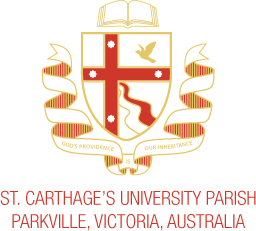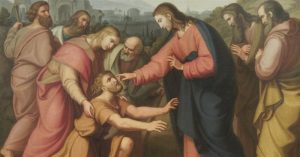Thirtieth Sunday in Ordinary Time Year B
Entrance Antiphon
Let the hearts that seek the Lord rejoice;
turn to the Lord and his strength;
constantly seek his face.
First Reading: Jeremiah 31:7-9. A reading from the prophet Jeremiah
I shall lead them back in mercy – both the blind and the lame.
The Lord says this:
Shout with joy for Jacob!
Hail the chief of nations!
Proclaim! Praise! Shout:
The Lord has saved his people,
the remnant of Israel!
See, I will bring them back
from the land of the North
and gather them from the far ends of earth;
all of them: the blind and the lame,
women with child, women in labour:
a great company returning here.
They had left in tears,
I will comfort them as I lead them back;
I will guide them to streams of water,
by a smooth path where they will not stumble.
For I am a father to Israel,
and Ephraim is my first-born son.
Responsorial Psalm: The Lord has done great things for us; we are filled with joy.
- When the Lord delivered Zion from bondage,
It seemed like a dream.
Then was our mouth filled with laughter,
on our lips there were songs. (R.)
- The heathens themselves said: ‘What marvels
the Lord worked for them!’
What marvels the Lord worked for us!
Indeed we were glad. (R.)
- Deliver us, O Lord, from our bondage
as streams in dry land.
Those who are sowing in tears
will sing when they reap. (R.)
- They go out, they go out, full of tears,
carrying seed for the sowing:
they come back, they come back, full of song,
carrying their sheaves. (R.)
Second Reading: Hebrews 5:1-6. A reading from the letter to the Hebrews
 You are a priest forever in the line of Melchizedek.
You are a priest forever in the line of Melchizedek.
Every high priest has been taken out of mankind and is appointed to act for men in their relations with God, to offer gifts and sacrifices for sins; and so he can sympathise with those who are ignorant or uncertain because he too lives in the limitations of weakness. That is why he has to make sin offerings for himself as well as for the people. No one takes this honour on himself, but each one is called by God, as Aaron was. Nor did Christ give himself the glory of becoming high priest, but he had it from the one who said to him: You are my son, today I have become your father, and in another text: You are a priest of the order of Melchizedek, and for ever.
Gospel Acclamation: Alleluia, alleluia! Our Saviour Jesus Christ has done away with death, and brought us life through his gospel. Alleluia!
Gospel: Mark 10:46-52. A reading from the holy Gospel according to Mark
As Jesus left Jericho with his disciples and a large crowd, Bartimaeus (that is, the son of Timaeus), a blind beggar, was sitting at the side of the road. When he heard that it was Jesus of Nazareth, he began to shout and to say, ‘Son of David, Jesus, have pity on me.’ And many of them scolded him and told him to keep quiet, but he only shouted all the louder, ‘Son of David, have pity on me.’ Jesus stopped and said, ‘Call him here.’ So they called the blind man. ‘Courage,’ they said ‘get up; he is calling you.’ So throwing off his cloak, he jumped up and went to Jesus. Then Jesus spoke, ‘What do you want me to do for you?’ ‘Rabbuni,’ the blind man said to him ‘Master, let me see again.’ Jesus said to him, ‘Go; your faith has saved you.’ And immediately his sight returned and he followed him along the road.
REFLECTION
The Pope’s Message
‘Jesus hears,’ Pope Francis says, ‘and immediately stops. God always listens to the cry of the poor.’
The story of Jesus’ encounter with blind Bartimaeus shows this to be true. Shouting for aid, Bartimaeus evidently irritates many of those following Jesus. To an extent, this is understandable. They wanted to see and hear from Jesus, after all, and Bartimaeus was disrupting the procession.
But Jesus hears the cry of one who, as the Pope puts it, is ‘full of faith, a faith that is not afraid to insist.’
As the Pope points out, Bartimaeus keeps his prayer simple. He honours the Lord and then asks first for mercy and only secondly for sight. In light of this, the Pope suggests that we take Bartimaeus’ prayer as our own and use it to reflect on the authenticity of our prayer life.
Are we ‘content with making a formal greeting every now and then,’ or is our prayer regular and heartfelt? Are our prayers ‘anaemic, superficial, made up of rituals, without feeling and without heart,’ or do we honestly share our experiences and worries with God? Do we try to silence others, or do we try to listen to them in the spirit of the One who hears us all?
© Nick Brodie

